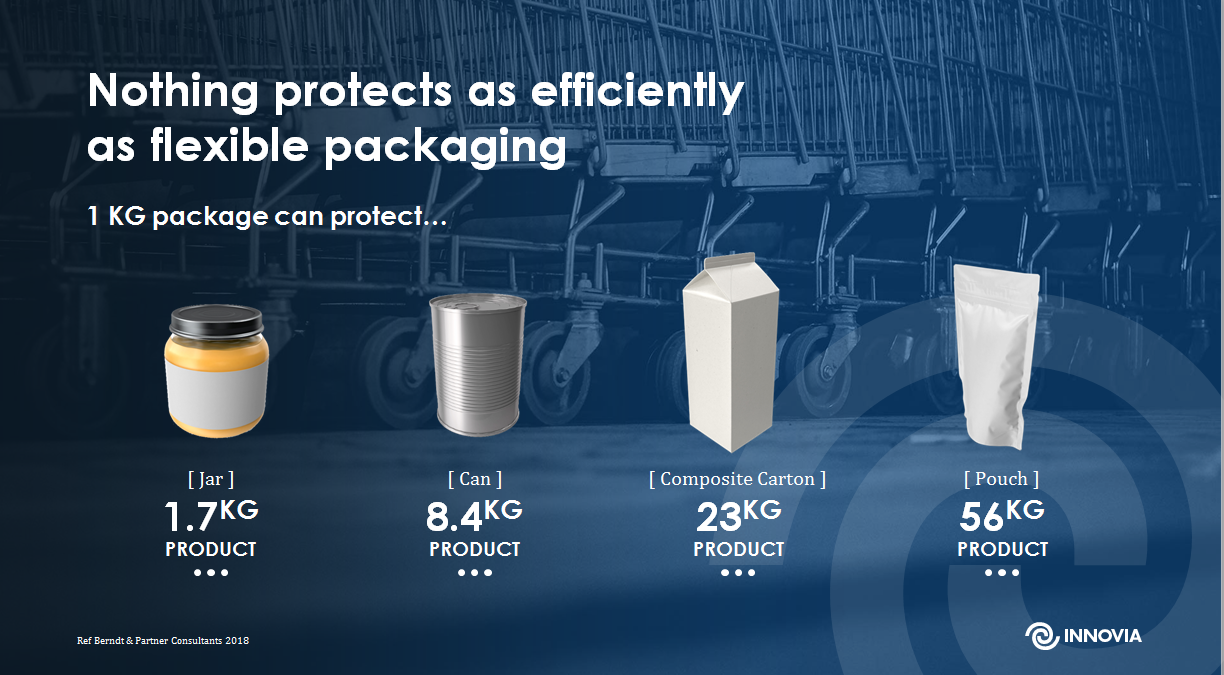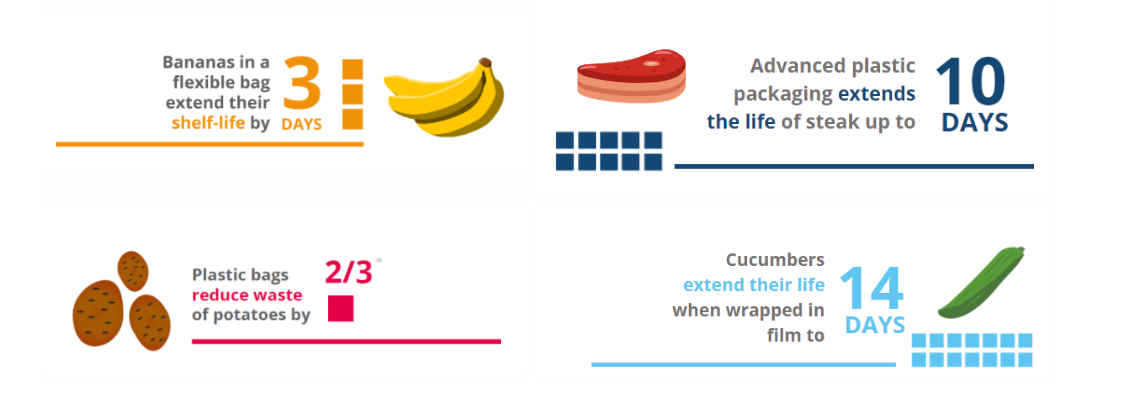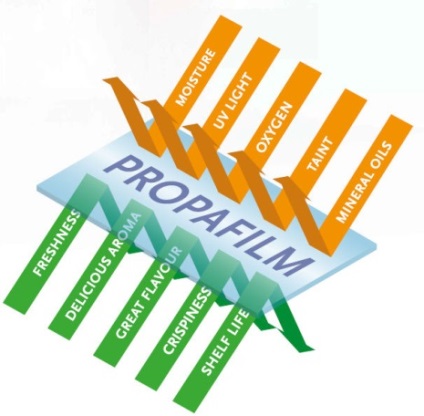

Benefits of Functional Plastic Packaging
The debate over the use of single use plastic which has been found in our oceans has increased the focus on plastics in general, including packaging used to protect perishable produce.
The anti-plastic sentiment is in total contradiction to the strengths that plastics can bring both in an environmental context and also to our everyday life. We need to recognise that reducing food waste and reducing carbon footprint is the key environmental consideration and currently this appears to be forgotten.
BOPP is a low carbon footprint film with excellent functionality and is highly resource efficient.
Food waste
Globally 1/3 of the food produced for human consumption is wasted, equivalent to 1.3 billion tonnes / year.
In the EU this represents 88 million tonnes or 173kg per person.1
In the UK we throw away 7 million tonnes of food and drink from our homes every single year.2
There is a similar pattern in most economies around the world. The production of food takes significant energy that contributes to greenhouse gas emissions, which in turn contributes to global warming. As a society it is therefore essential that we use as much of the food we produce as possible, not just on moral grounds, but also for sound environmental and economic reasons.
Functional plastic packaging is a key tool in preventing food waste and actively extends shelf life. Using as little packaging as possible whilst giving the maximum protection, is the optimal environmental solution.
Resource efficient
Flexible packaging and in particular low density materials such as BOPP are the most resource efficient packaging option. Not only do they use fewer raw materials, they are significantly lighter than alternatives. This means additional environmental savings can be achieved through the supply chain.

1 European Parliament 2017
2 https://www.food.gov.uk/news-updates/campaigns/food-waste
Extending shelf life

Image courtesy of The British Plastics Federation
One of the most important ways that flexible packaging reduces food waste is by controlling the transmission of gases and moisture vapour, both in and out of a pack. Different products require different barrier properties.

Innovia Films has over 45 years of developing technical films that provide protection to products they wrap to ensure they remain in optimum condition for consumers. We work with food manufacturers, converters and packing companies to develop films that maximise shelf life.